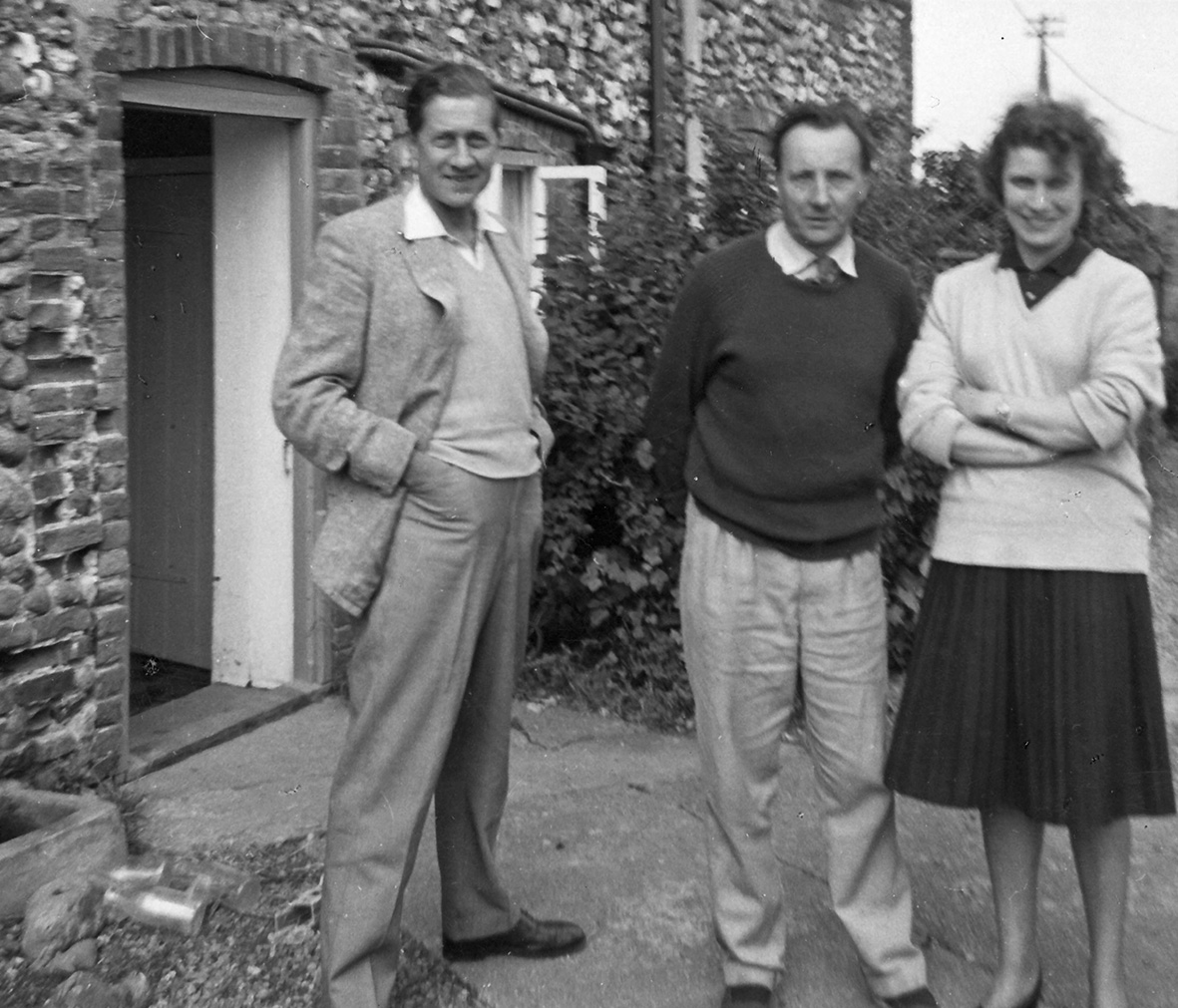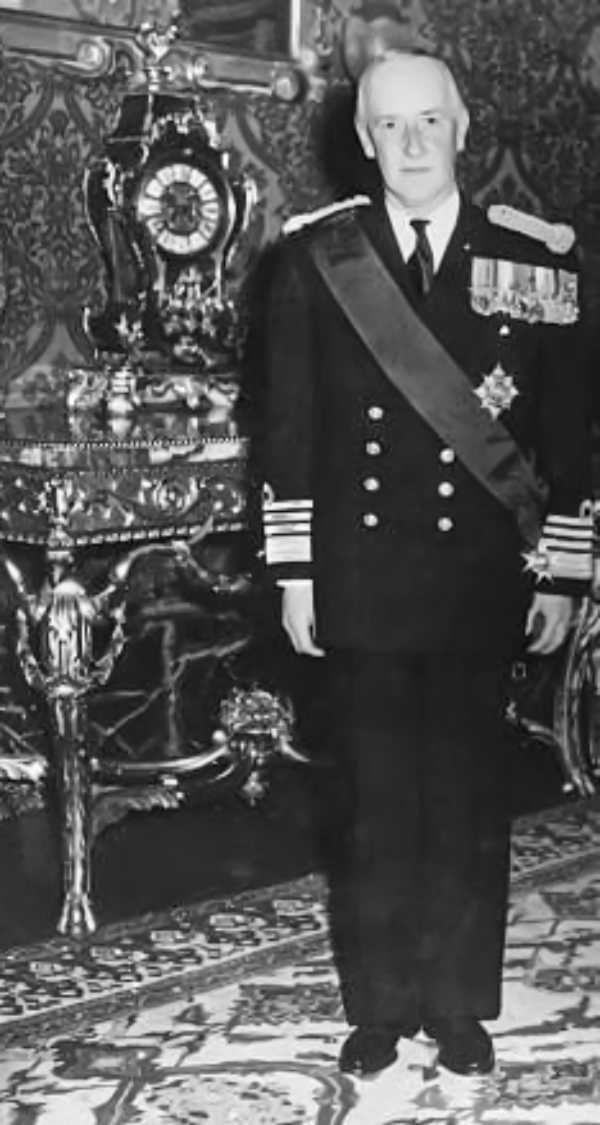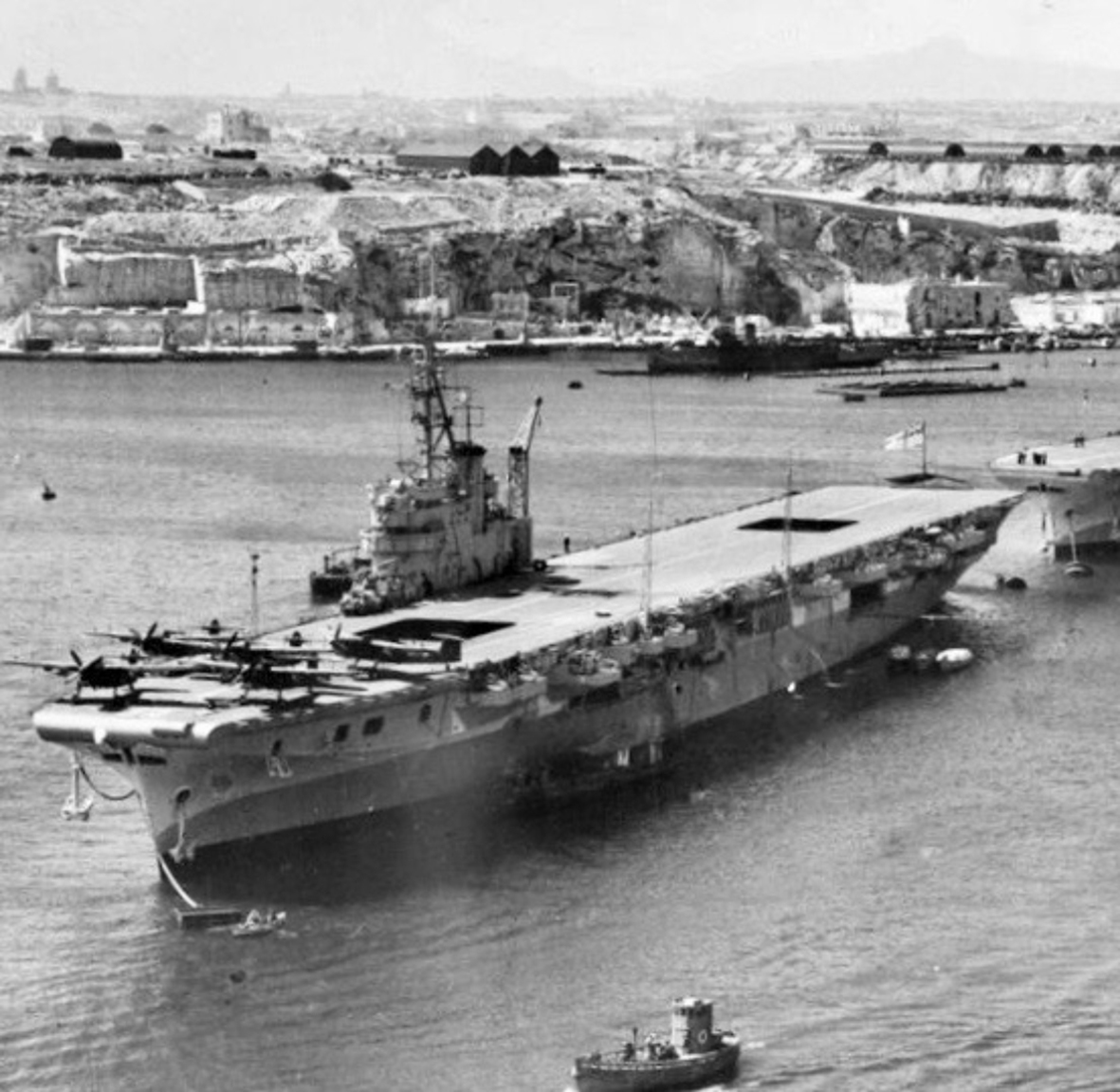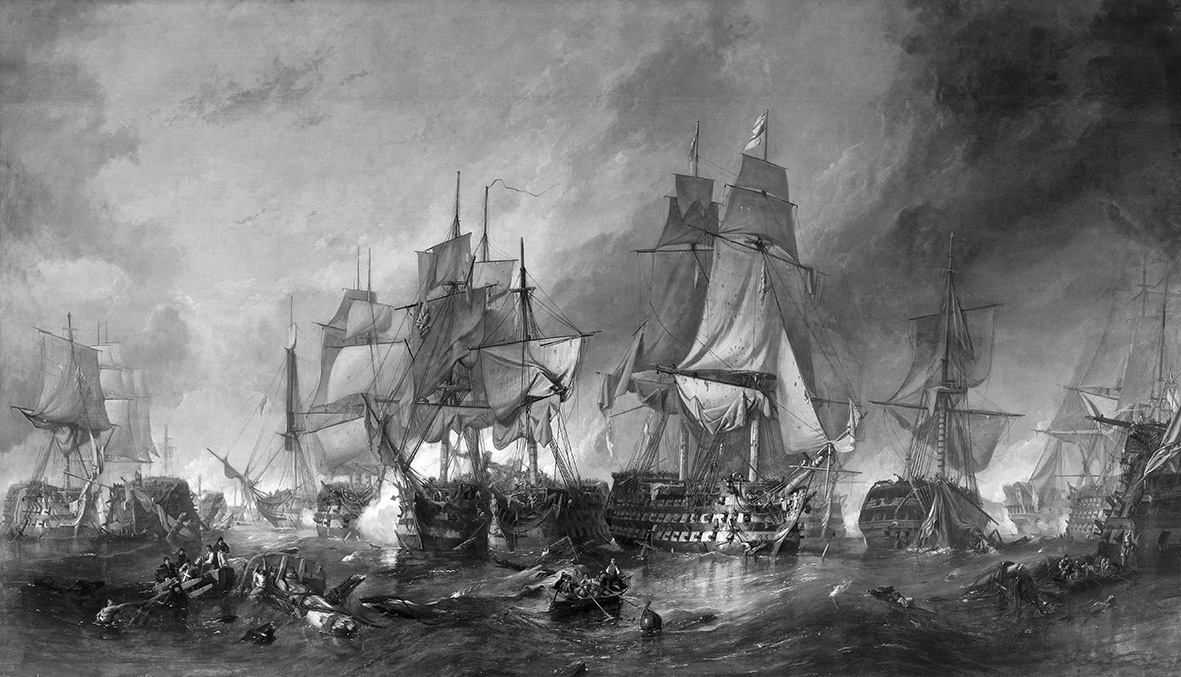Berkeley’s opera ‘Nelson’
Tony Scotland tells the story of Lennox Berkeley’s grand opera ‘Nelson’
Lennox Berkeley was born under the White Ensign. His father was a captain in the Royal Navy; his uncle and a great-grandfather were commanders; and a great-great-grandfather was an admiral, whose daughter married Nelson’s Hardy. Lennox Berkeley himself was destined for the Navy but, in his father’s own words, he was such ‘a goose about arithmetic’ that he failed the entrance exam for the Royal Naval College at Osborne. Besides, his ‘deficiency of determination’ at the time, together with general poor health and colour-blindness, stood against him. On the outbreak of the Second World War, he applied for the Royal Air Force, but this time he was rejected on grounds of age. Instead he volunteered as an ARP warden protecting civilians during the Blitz.
Berkeley always loved the sea, which he first encountered as a child in the south of France, where his maternal grandfather, Sir James Harris, was British Consul in Nice, and his paternal grandmother, Cécile, Dowager Countess of Berkeley, spent her widowhood. At public school at Gresham’s in Holt, he grew to love the North Sea, which was only five miles away. As a young man, just before the war, when he was living in a windmill at Snape with Benjamin Britten, the North Sea was once more at hand. And in middle age he and his wife, Freda, bought a holiday home at Morston in North Norfolk, half an hour along the coast from Burnham Thorpe, where Nelson was born; this bleak cottage, aptly named Coldblow, was where Berkeley scored much of his Nelson.
The idea of writing an opera first came to him when he was staying with his elderly parents in their villa at Cap Ferrat in 1932. Somerset Maugham and his racy companion, Gerald Haxton, lived three minutes down the road in the Villa Mauresque, and Berkeley spent a lot of time with them there, playing tennis and golf, swimming in the pool and the sea, and enjoying any number of glamorous luncheon and dinner parties.

One of the house party at the Mauresque that summer of 1932 was Berkeley’s slightly younger Oxford contemporary, the writer Alan Pryce-Jones, and the two young men hatched an idea for an opera. Pryce-Jones sketched out a scenario, and Berkeley thought the plot was ‘an excellent one to build something on’, giving ‘ample scope for all the things that we thought of – polkas etc’. He envisaged an opening scene incorporating ‘a grand finale to an opera in the Italian style’, and he imagined them having ‘such fun with an Italian tenor!’
The opera came to nothing – though Berkeley went on to write an oratorio, Jonah (also, of course, on a sea theme); and the two men’s paths diverged until about 1948, by which time both had married. Berkeley by then had left the BBC and was teaching composition at the Royal Academy of Music, and he and Freda were starting to raise a family at No 8 Warwick Avenue. Pryce-Jones was Editor of The Times Literary Supplement, and commuting to London from his house in Kent. Finding the daily train journey too demanding, he asked the Berkeleys if he could use their empty top floor as a pied-à-terre.
Berkeley was still eager to write an opera, and the idea of a musical collaboration soon cropped up again. Pryce-Jones had recently translated a new production of Der Rosenkavalier at Covent Garden, and Berkeley imagined he would know something about the mechanics of writing a libretto, and perhaps about stagecraft too.
In his autobiography Pryce-Jones recalls that he had assumed Berkeley ‘had something domestic or whimsical or pastoral in mind – something which might stem from the example of Ravel, with whom he had worked as a young man.’ So he suggested a subject from the writings of Ivan Turgenev. But it turned out that what Berkeley really wanted was an heroic theme, and so they hit on the story of Nelson and Emma Hamilton as a way of exploring the classic conflict between love and duty.
The plot grew from the monumental and much-praised biography of Nelson which Carola Oman had just published. Using newly-available primary sources and re-examining the old sources, Oman’s study of 1946 debunked the long-established myths to reveal the mortal behind them. Following her lead, the new opera downplayed the valour of warfare, concentrating instead on revealing a national hero as an ordinary man torn between love (for his mistress) and duty (to his country). Nelson is neither a glorification of Britain’s naval triumph, nor a paean to a hero. Like Britten’s later Gloriana, about the relationship between Queen Elizabeth I and the Earl of Essex, it’s a love story, tragic and unheroic.
For musical inspiration Berkeley turned to the operas of Benjamin Britten, his friend and exemplar since they had shared the windmill in Snape. In particular he was inspired by Peter Grimes, with which he had been closely involved – from its first sketches in Britten’s flat over a grocer’s shop in St. John’s Wood in 1944 to its premiere at Sadler’s Wells a week after VE Day in 1945, and a new production at Covent Garden in 1947.
Like Grimes, Nelson is in three acts. In the first, Nelson meets Emma for the first time at a reception at the Hamiltons’ palazzo in Naples in 1793. Nelson is 35, with a wife at home in Norfolk – he’s a rising captain in search of Neapolitan support for the fight against the French. The beautiful Emma, muse of the painter Romney and famed for her famous Attitudes, is 28 and married to Nelson’s host, Sir William Hamilton, British Ambassador to the Kingdom of Naples. The two fall in love, and Nelson is warned by Madame Serafin, an old Neapolitan fortune-teller, that he will soon have to make a fatal choice between love and duty.
The last scene is set in the cockpit of HMS Victory at the height of the Battle of Trafalgar. Nelson has been shot and mortally wounded by a French musket ball. But he lives long enough to hear the news that his fleet has won the battle, and as he lies dying his thoughts are with Emma. ‘Take care of my dear Lady Hamilton,’ he says to Hardy, before the famous kiss, ‘take care of poor Lady Hamilton’. But the opera does not end there: in their focus on personal relationships, Berkeley and Pryce-Jones give the last word to Emma, and that word is ‘Nelson!’.

To gain colour for the battle scene, help was at hand from neighbours in Warwick Avenue. Renting No 4 while its owner, Lord Kinross, was away, were ‘Peta’ Lambe (who, as ‘Peta’ Mylius, had taken the windmill at Snape for a month in 1940, when Britten was in America, and Berkeley in Gloucestershire), and her second husband, Rear Admiral Charles Lambe. Berkeley hoped the admiral might be able to offer a sailor’s insight into the atmosphere aboard the Victory during the closing hours of the great battle.
Admiral Lambe had just been appointed Flag Officer commanding the 3rd Aircraft Carrier Squadron in the Home Fleet, and it turned out that he was able to offer considerably more than an insight. In January 1950, still a month or two in the future, the Home Fleet would be embarking on its winter exercise to Gibraltar, passing through the very waters of the battle, and the admiral invited Berkeley to join the cruise aboard his flagship, HMS Vengeance. Berkeley needed no persuasion, and though he knew that Charles Lambe was musical, that he played the piano and sang in the Bach Choir, he was unprepared for the next surprise. The admiral revealed that in his day cabin aboard the aircraft carrier he kept nothing less than a grand piano, and, in Berkeley’s honour he proposed to have a second grand installed, so they could play duets and music for two pianos and four hands during the voyage. All he asked was that Berkeley should bring plenty of music.

The fleet of twenty-two of His Majesty’s ships sailed from Portland just after Christmas, and the two friends made music on the two pianos for an hour or two every night after dinner, the admiral proving to be an accomplished sight-reader. ‘I can’t remember exactly what we played,’ Berkeley wrote years later, ‘Mozart and Schubert, I think. What I remember chiefly was his enjoyment. He didn’t approach music with solemnity but with delight, and this gave me a pleasure I have not always experienced in playing with professionals.’ According to the admiral, it was mainly Haydn they played. ‘Lennox carried you along’, he said, ‘and made you feel as if you really could play.’
When they were off Cape St Vincent, west of the busy shipping lanes outside the Strait of Gibraltar, the entire squadron reduced its speed so that Lennox would have time to absorb the atmosphere of the place where Nelson fought the French and Spanish fleets. Then, in accordance with naval tradition, a wreath was cast on the waters where Nelson lost his life at the moment of victory.
Putting in to Gibraltar, they were met by the Governor, Lieutenant-General Sir Kenneth Anderson, who handed Berkeley a letter which had just arrived for him in the diplomatic bag. Imagining it must be official business, Berkeley did not immediately look at it. Instead he and the admiral drove to Granada for some sight-seeing at the Alhambra. Back in Gibraltar, after spending the night in Government House, Admiral Lambe arranged a lift home for Berkeley – in the battleship HMS Vanguard, comfortably but without any music.
Alone in his cabin, at the start of the voyage home, Berkeley remembered the letter: it was from his wife, Freda. Lonely without him, pregnant (with their second son, Julian), and fearful of a return of the nightmares which she used to suffer before marriage, she had asked the au pair to sleep with her in the big marital bed. She had been willing to try sleeping alone, she told Lennox, even at the risk of nightmares, but felt it would not be good for the baby.
‘I went to 12 o’clock Mass at Lisson Grove today,’ Freda wrote in her letter, ‘and said prayers and lit a candle for you from Mikie [their first son, Michael] and me. We both love you so much my darling and long to have you with us again … Ben [Britten] has just ’phoned to ask us out to lunch … He was very impressed about your trip.’

Once Berkeley was home at No 8, and Freda had been comforted, he wrote to Charles Lambe: ‘I can never thank you enough, not only because of the novelty and interest of everything I saw, but because of feeling the wonderful spirit and atmosphere that the Navy alone has, and of having, for a moment, the illusion of being part of it. I’m quite sure that something of the atmosphere I absorbed will bear fruit in due course.’
Almost exactly four years later Nelson was finished. A run-through with piano at the Wigmore Hall on 14 February 1954 went so well that Sadler’s Wells was persuaded to mount a full-scale staged production, directed by George Devine and conducted by Vilem Tausky. The opera then generated such a fever of publicity that the BBC decided to broadcast the opening night performance live on the radio – not on the minority Third Programme, but on the popular Home Service.
In the event, however, the opera was not the hit its supporters had hoped for. Over the course of the following week the reviews were only lukewarm: ‘a singers’ opera’ (Daily Telegraph), ‘many qualities likely to ensure it permanence’ (Observer), ‘generous expanses of subtle music’ (News Chronicle); The Times passed the withering but ultimately meaningless judgement that, while Berkeley had ‘long outgrown his dry-as-a-biscuit manner’, his music could ‘never be other than aristocratic’. Some critics blamed the male singers, some the production, others the libretto.
The truth is that Horatio Nelson was not really Berkeley’s kind of hero, nor grand opera his métier. As a later critic pointed out, Berkeley was too modest a man to be able to tackle such an heroic theme, and on such a scale. The Times critic said the opera’s musical invention was ‘copious, fresh and symphonically delightful’, but lacked – even if only just – ‘dramatic flight’. The notice added that Pryce-Jones might be a brilliant journalist, but he lacked the necessary practical experience to construct a dramatic opera – even if his libretto did have the makings of a gripping novel.
The piece could have worked as a cantata, or a tone poem – and Berkeley did make two concert versions for timpani, percussion, harp and strings (a Suite of sixteen minutes, with the addition of celesta, and an Interlude of five minutes). But he had not been able to resist trying to do what Britten had done so effectively in Grimes, even though he was well aware of the pitfalls.
From the very beginning Berkeley had anticipated ‘all sorts of difficulties’, and it is interesting that now, happily married and newly confident, he grappled with these technical problems on his own, without recourse to the greater experience of Benjamin Britten. In a letter to Britten just after he had started work, he wrote, ‘How often I’ve wished you were at hand to give me advice, but one can only learn by making mistakes, and I have to forget about you or I would never dare do it at all!’